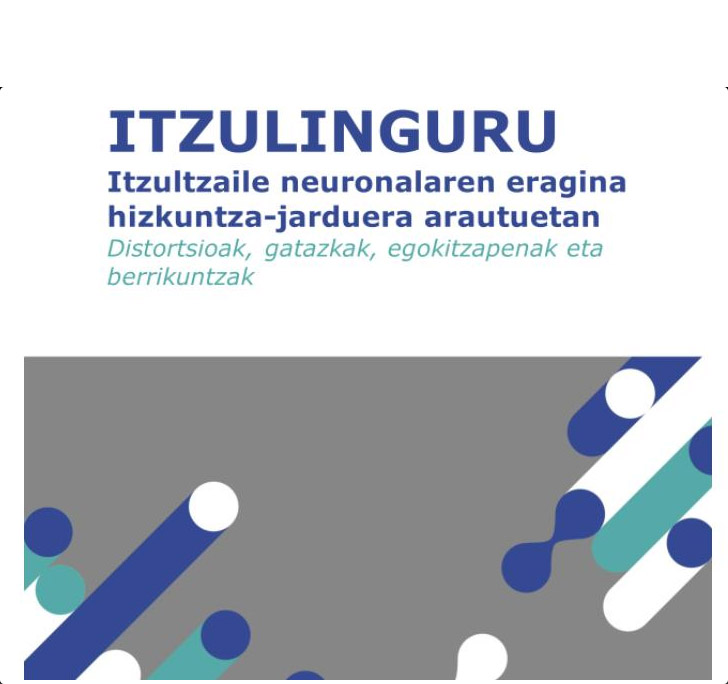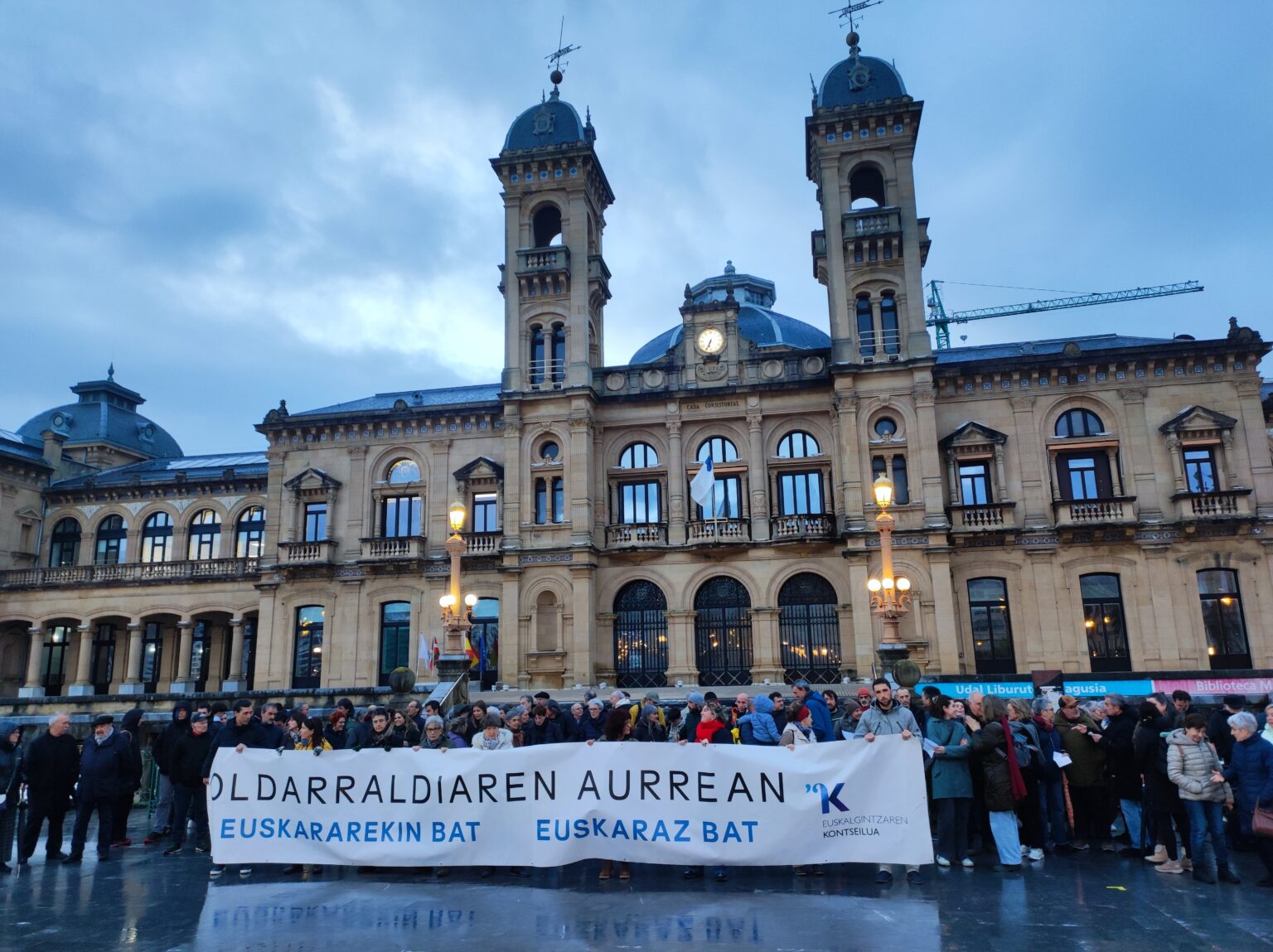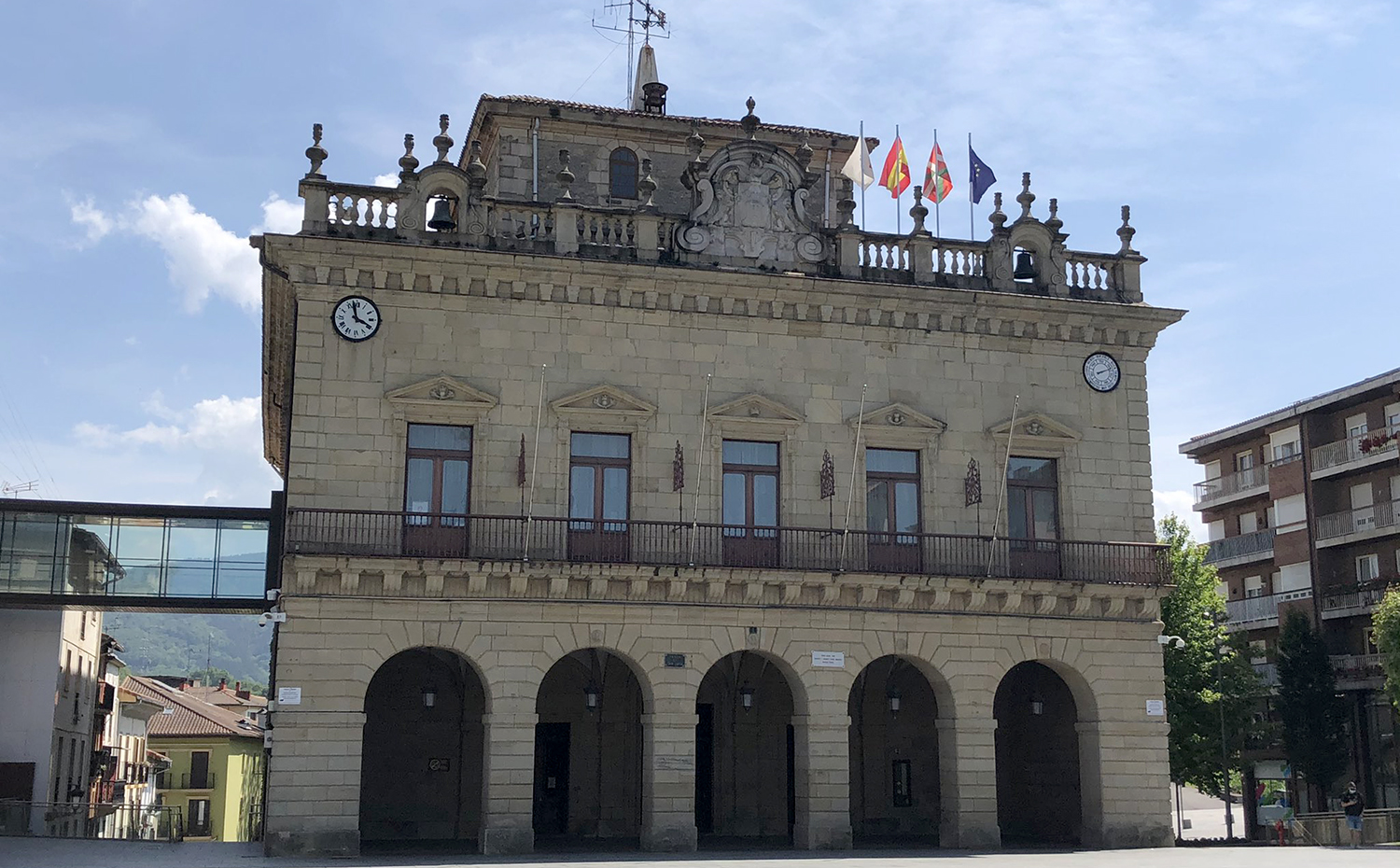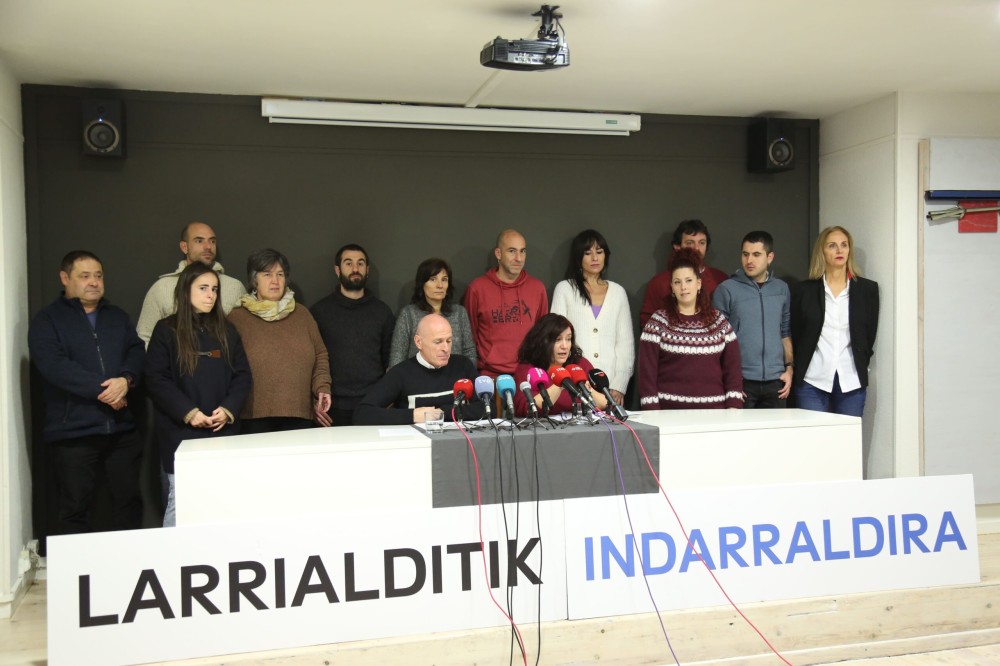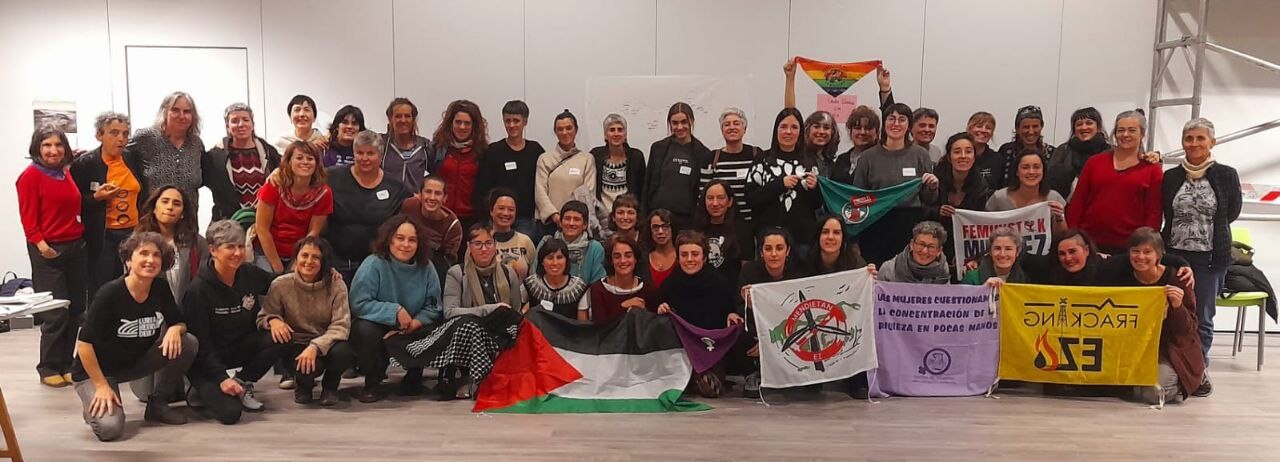"In the field of health, competence to use minority language is not sufficient, linguistic awareness is needed"
- Iker Villanueva (1995, Durango) is an internal medicine physician residing in the Hospital de Galdakao. It strongly advocates the link between quality health care and language. Not in vain the Basque Country in the Medical Degree of the UPV/EHU. What can we learn from international models? has just carried out a post-graduate research. It is clear: medical students have to learn Basque and that is not enough: it is essential to have a linguistic awareness. After the end of the working day we met him at the hospital, after caring for patients infected with COVID-19.
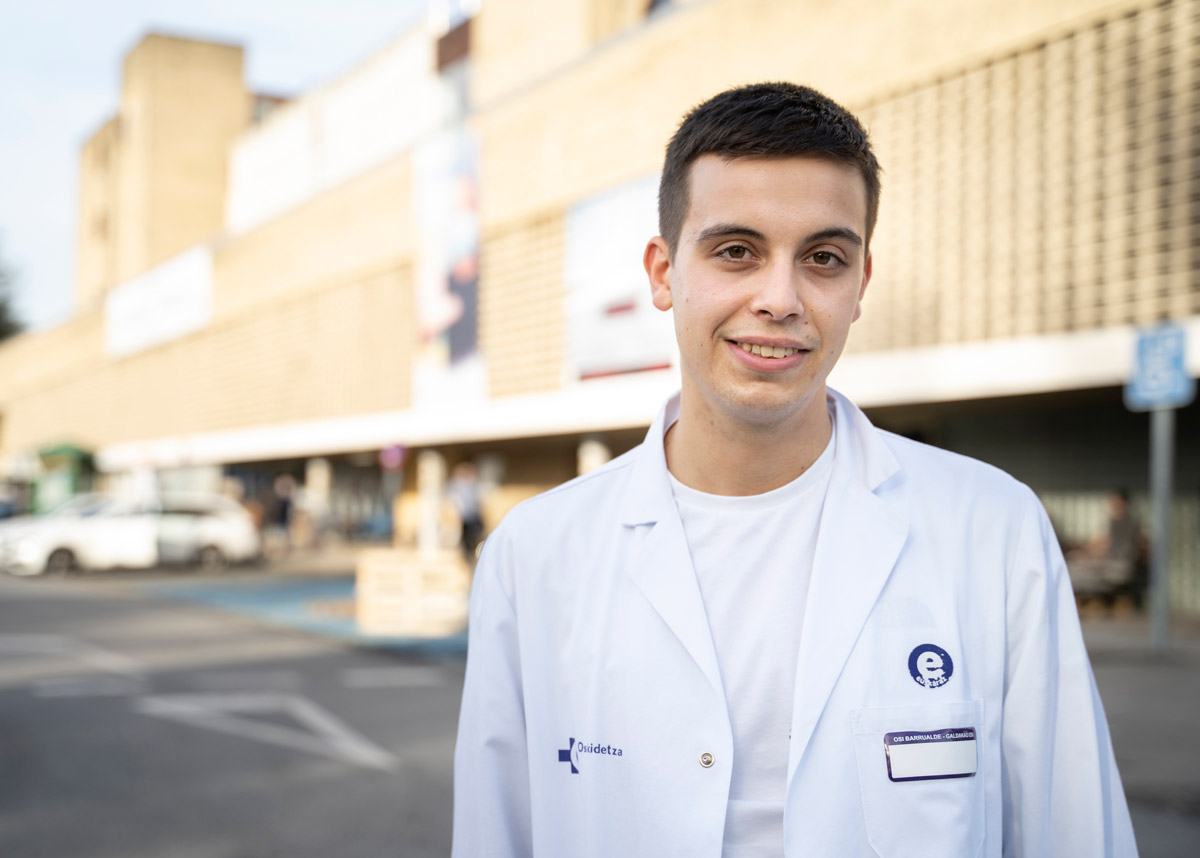
It says that universities play a fundamental role in the subject of language in order to provide quality health care. To begin with, doctors have no option to study all the studies in Euskera. What is the situation of the Medical Schools of the Basque Country?
Today, the degree in Medicine, in its entirety, cannot be studied in Euskera in the Basque Country. I have studied at the UPV/EHU and there is the only offer in Basque. I have also based research on the UPV/EHU, but the reality is not the UPV/EHU. In the Basque Country you can study medicine in three other universities. There is no offer in Basque at the Universidad Pública de Navarra and at the Universidad de Navarra. This year, at the University of Deusto you will be able to study Medicine and it seems that there will be a certain offer in Basque. They say that 48 credits will be granted in Basque, but so far the number of credits to be offered by levels has not been determined. It's yet to be seen.
At the UPV/EHU, the three years of the first cycle can be completed in Basque, but courses 4, 5 and 6 cannot. The percentages of localization of the teaching unit are variable. In Vitoria-Gasteiz there are no offers in Euskera and in the rest it is between 50% and 80% of them.
The students of Ipar Euskal Herria have French studies in Bordeaux and although they try to come to the UPV/EHU, for reasons of validation they find it very difficult to enter.
We have talked about ensuring linguistic competence, but in the study you say that you need more than that, that you need linguistic awareness. What do you mean by that?
Having linguistic awareness in the field of health is to be aware of the importance of using one's own language in patient care, in quality care. In our situation, if we want to use a minority language in the field of health, it is not enough to have linguistic competence, it is necessary, but not sufficient. It takes something else to be an active speaker. Another thing is linguistic awareness.
How is this taught in faculties?
It can be taught, there is evidence and corpus around this subject, but here it is not done. At the UPV/EHU there is a subject to work on communication in a broad way, but the importance of language is not mentioned at any time, paradoxically. In two other areas, the Basque language works, but the technique, that is, the terminology. Linguistic awareness does not work, where one would insist, for example, on how important it is to speak in Basque with Euskaldunes patients, and if we do not in Euskera, on what damage or loss there may be in that communication relationship.
“More than half of the students finish Medicine at the UPV/EHU without having received a single subject in Basque”
He's not in college. Outside this, something has been done: Postgraduate, days...
The concern for language is relatively new in the Basque Country. In recent years we have been working with it more and more, there has been a proliferation of days and research, there is increasing evidence. The creation of graduate studies has been a step forward, serious consideration has been given to the subject, but the next step must be to incorporate this content into the studies of undergraduate students, for all, for the Euskaldunes and for the Castellanospeakers. It should then be offered in the workplace.
You propose to work the linguistic conscience in the Basque and Spanish branches, although in the Spanish branch there are students who do not know Euskera.
It is understandable that at first it becomes strange: Why teach Castilian speakers language awareness? It is proven that it is beneficial to do so. Research has been carried out in Wales. If the Castilian speakers acquire linguistic awareness, when the Basque comes to the consultation, they will allocate it to an Euskaldun professional, or, at the same time, they will not feel the Basque as something foreign and will not have an attitude contrary to the Basque. Perhaps in the future they can be encouraged to learn Basque. If you know the importance of language in health care, you will surely take action.
He has looked at the models of Canada and Wales. Do language awareness among students work there? And with the professionals as well?
They were pioneers in Canada and today they work a lot in Wales. They range from university to worker activity. At the largest health organization in Wales, BCUHB Betsi at the Cadwaladr University Health Board, all employees who have entered the reception programme since 2017 are required to receive language awareness training. Imagine, any professional who joins an organization like Osakidetza would be trained.

It is therefore not done here.
That is why I mentioned the example of Wales here.
Users have often denounced the attitudes of professionals without linguistic awareness: the pediatrician who is surprised that the child does not know Spanish, the cardiologist who will tell you “I don’t know Basque, but you know Spanish, right?”...
You need to change the chip. Many professionals say they have asked them for a linguistic profile to do this work. They complain. Instead of seeing Euskera as something to be cared for, they see it as an obstacle or an intruder. It's the attitude of a people. “I have years of experience and have not been hired, they have hired that other, is much younger and has little knowledge, but they have received it because it meets the requirement of Euskera.” They think that Euskera is not necessary. They're working in front of the public, in the Vascophony zone -- of course, Euskera is an important competition. Anyone who knows Euskera will give a better service. That is the case!
You mentioned earlier that it is new to link quality care with language.
Until recently, the speech has focused on the area of linguistic normalisation and the subject is much broader than linguistic normalisation. The quality of health care is at stake. We Euskaldunes have the right to be treated in Euskera, yes, it is true, but it is not only that. If you don't listen to Euskaldunes in Euskera, you may go through some things inadvertently, they don't express themselves well... you're not providing quality care. The discourse of rights can be slippery, one of Citizens can say that the professional also has the right to choose the language in which he wants to work.
Is this an unprecedented issue at international level too?
Yes. The pioneers were the Anglo-Saxon countries, especially the United States. Concern began in the early twentieth century, focusing on the linguistic rights of immigrants and the limitations they had to communicate with them. Subsequently, concern spread to several countries and reached the area of minority languages. That is the direction in which Aboriginal people have been working in Canada, Wales and Australia.
“If the professional is aware of the importance of the language in health care, he will surely take steps”
We're going to take the leap to the School of Medicine. It proposes a trilingual model. Would that guarantee Basque doctors?
Currently, about 40% of students choose the Basque language course. Therefore, we could say that more than half of the students finish the course without having received a single Euskera course at the UPV/EHU. You have to turn that around and there may be two options: keep only the Basque branch and leave the Spanish branch or organize a trilingual model career. I propose the latter. Euskera and Castilian are the languages spoken by most people on the street and it is the doctor who has to know how to develop well in both languages, also scientific terminology. And why English? It's a scientific language, it's the language of most publications, and on the other hand, we're increasingly serving more immigrants and using English. There are examples of this in the Spanish State. At the University of Girona, in Medicine, they have a trilingual model. It is true that Catalan and Spanish are similar languages, but what I mean is that it is legally possible.
The river always brings dirty water and cleans the lake. Explain the metaphor used in the research.
It has neither feet nor heads. Castilian and Spanish students are trained and when they enter Osakidetza they will be offered the option of Euskaldunize, a kind of leave. That's very expensive. The lake, i.e. Osakidetza, is dirty and trying to clean the lake, but the river has not ceased to bring dirty water, that is to say, to the Castilian children. This makes it difficult for the lake to be cleaned. On the contrary, there is a great opportunity to create future Basque workers with linguistic competence and conscience.
Another key to ensuring quality care is active provision. What does this mean? Is an active offer being made in Euskal Herria?
It is about caring for the patient in her language without her asking. This concept has been worked mainly in Canada, but to give an example here, I would mention the circuits in Basque between primary care and especializada.Si in primary care it is detected that the patient is Euskaldun, when referring to specialized care, for example to the cardiologist, this professional will be Euskaldun. The patient has not requested it. In Arrasate and Vitoria-Gasteiz these types of circuits have been developed and in Galdakao they have been installed in these types of circuits. These are pilot experiences, quite good test times.
The active offer is anecdotal. On the other hand, we were asked which language users wanted to be cared for and many Euskaldunes chose the Basque language. It is not good, the Spanish doctor comes to us perfectly.
It just doesn't work. Ours and it doesn't always work. [In the doctor's white uniform shows us the letter e he wears in the chest. This symbol means that the professional knows Basque]. Resident doctors take the aprons out of a machine. We can't choose between the one who has the symbol and the one who doesn't, we have to take what the machine gives us. Medical specialists do have their uniforms and can place the symbol e on the door of the consultation. However, in the hallways you will see a lot of e and many do not know Euskera. It is not an effective tool, as users see the symbol and believe they know Euskera, start talking in Euskera and the professional does not know it.
He has stressed the need for a reference research centre for the Basque Country. What would this centre be like? What for?
I said earlier that the line of research linking health and language is relatively new. In recent years there has been some sort of prosperity, more and more researchers are working on it, more and more evidence. There is a proper context for the creation of a large research centre of this kind. It would be something like the LLAIS research centres in Wales or Monton in Canada. These are found in universities and work with health institutions.
What can be investigated in such a center? The degree of satisfaction of the Basques, their incidence in the control of chronic diseases in Basque or Spanish, the majority of the diagnostic tests developed at the international level are in English and must be adapted to the Basque country, it is possible to develop a guide of good clinical research practices in health in bilingual areas, there is a guide in Canada, etc.
You believe that the seed has been sown here to open a research centre.
The implementation of the trilingual model and the establishment of such a research centre require investment and political will. Of course, there would be resistance on the part of some sectors to change the three-leaf model, for example. The question is how these resistances are overcome, how the Basques have the strength to move from one side to the other in this power relationship. The need for such changes is scientifically well-argued, not based on linguistic rights, but on quality health care.
Ilbeltzeko igande goiz batez jo dugu Baztanera. Eguzkiak oraindik ez du Lekarozko plaza argitu; bertan elkartu gara Garbiñe Elizegi Narbarte, Itziar Torres Letona eta Ernesto Prat Urzainkirekin. Itzaletan hotz egiten du eta umorez goxatu dugu lehen agurra, hogei urtean... [+]
Hizkuntzarako ere gurasoak haurrentzako eredu direla kontuan hartuta, euskararen erabilera eta irakaskuntzari buruz sentsibilizatzeko helburua duen hamabostaldia antolatu dute Hendaia, Urruña, Donibane Lohizune eta Ziburuko herriek. Martxoaren 15etik 30era guraso... [+]
Gabonetako argiak pizteko ekitaldia espainolez egin izanak, Irungo euskaldunak haserretzeaz harago, Aski Da! mugimendua abiatu zuen: herriko 40 elkarteren indarrak batuta, Irungo udal gobernuarekin bildu dira orain, alkatea eta Euskara zinegotzia tarteko, herriko eragileak... [+]









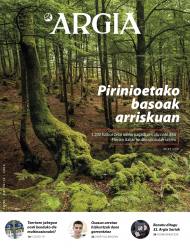

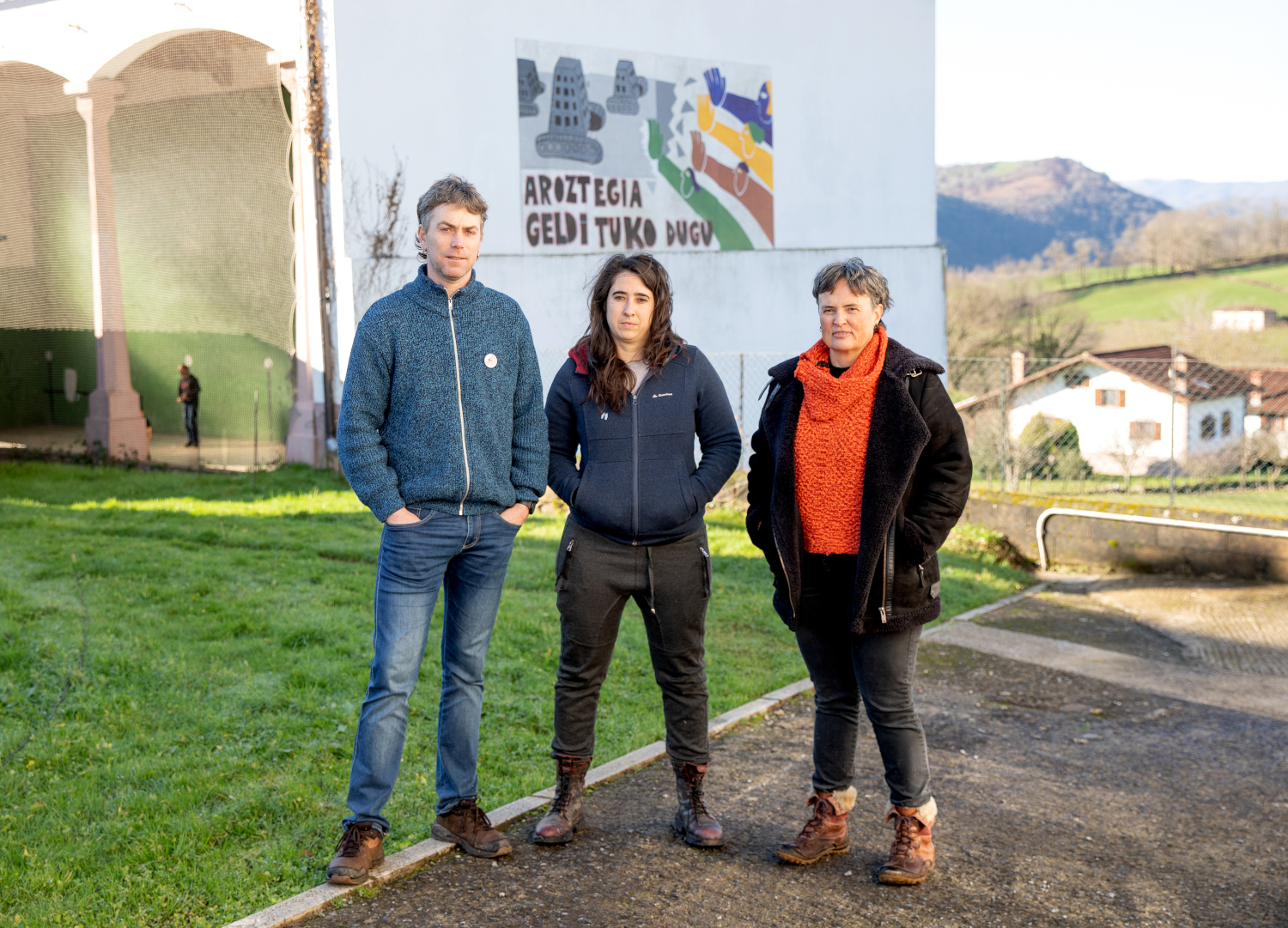
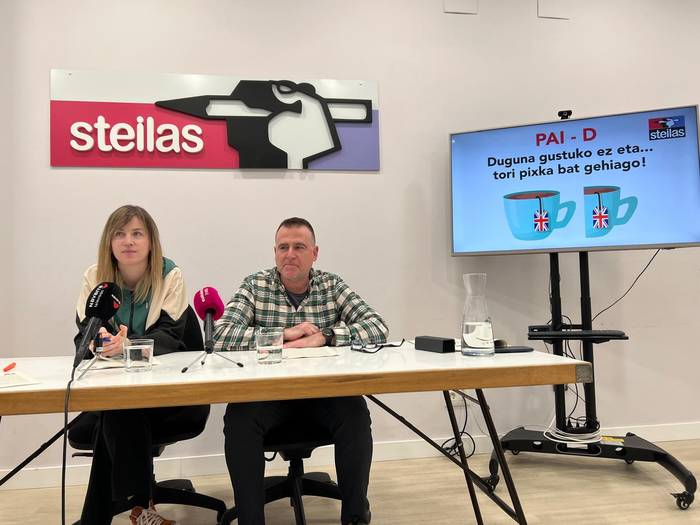


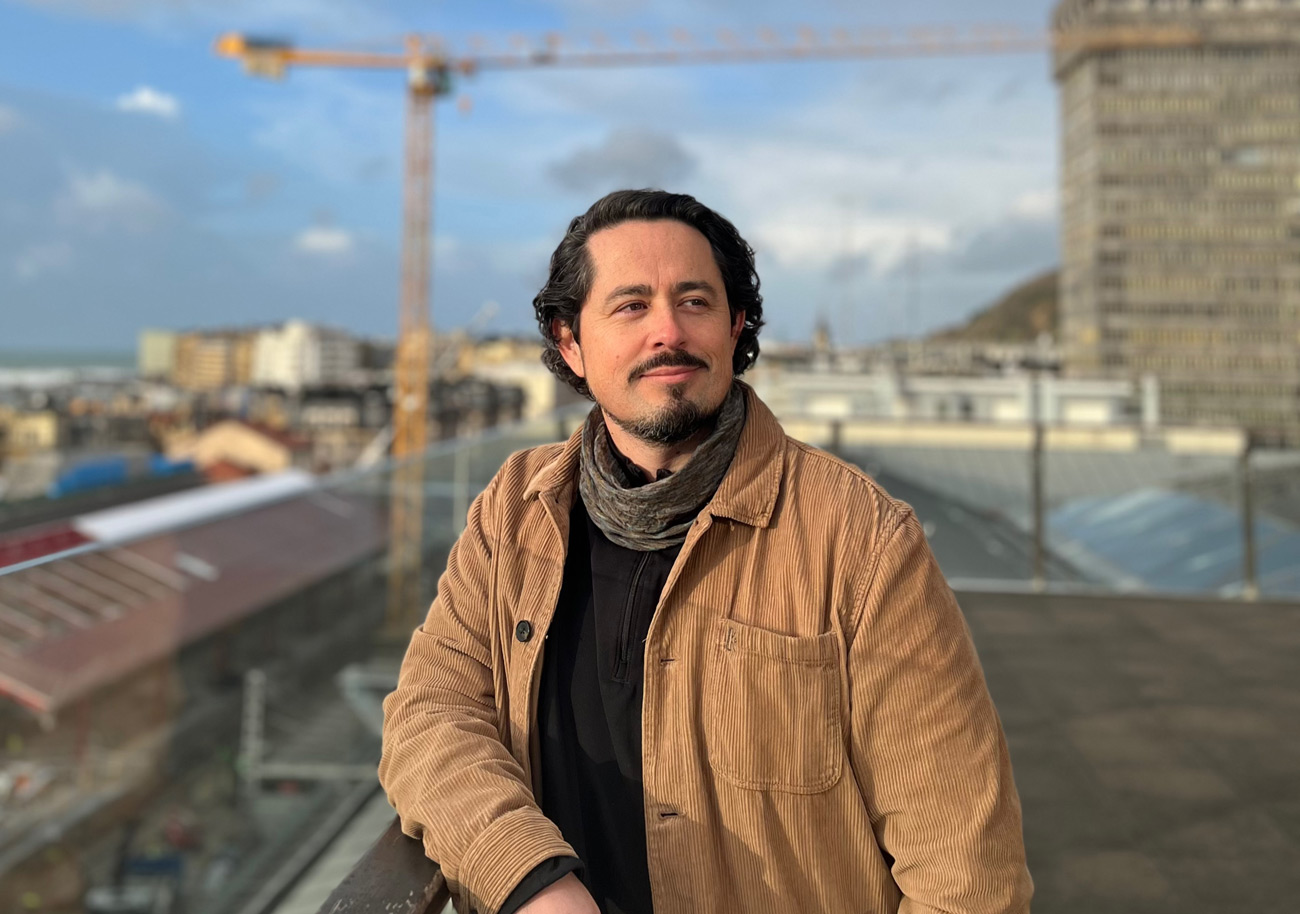
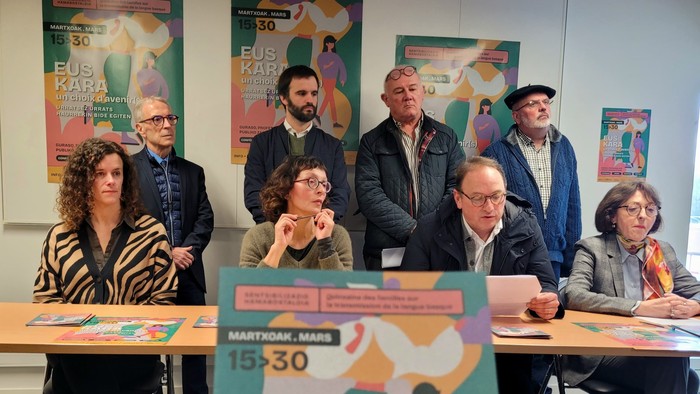
.jpg)
